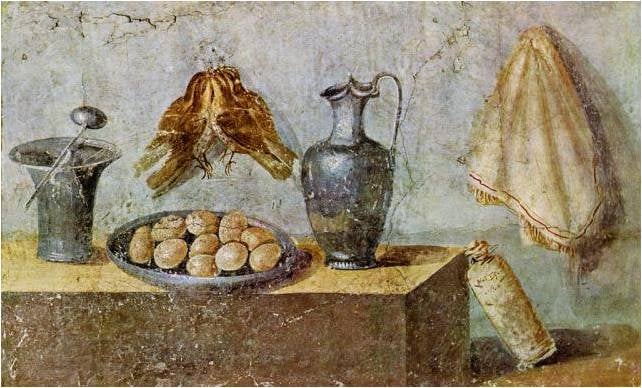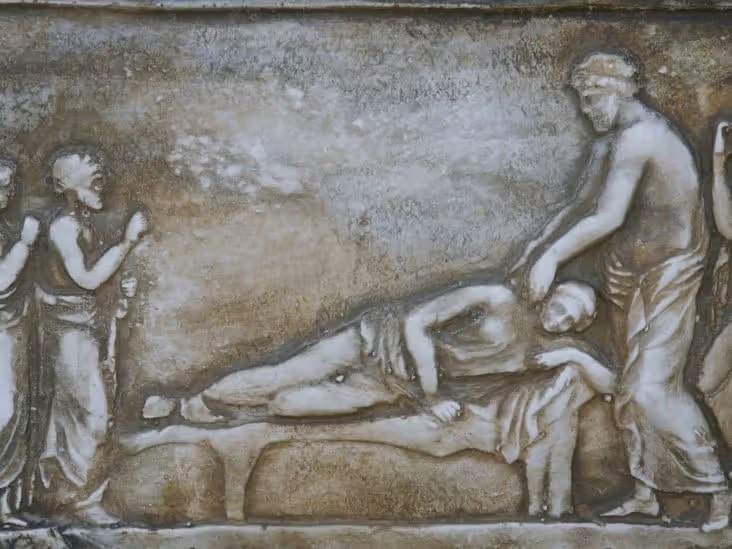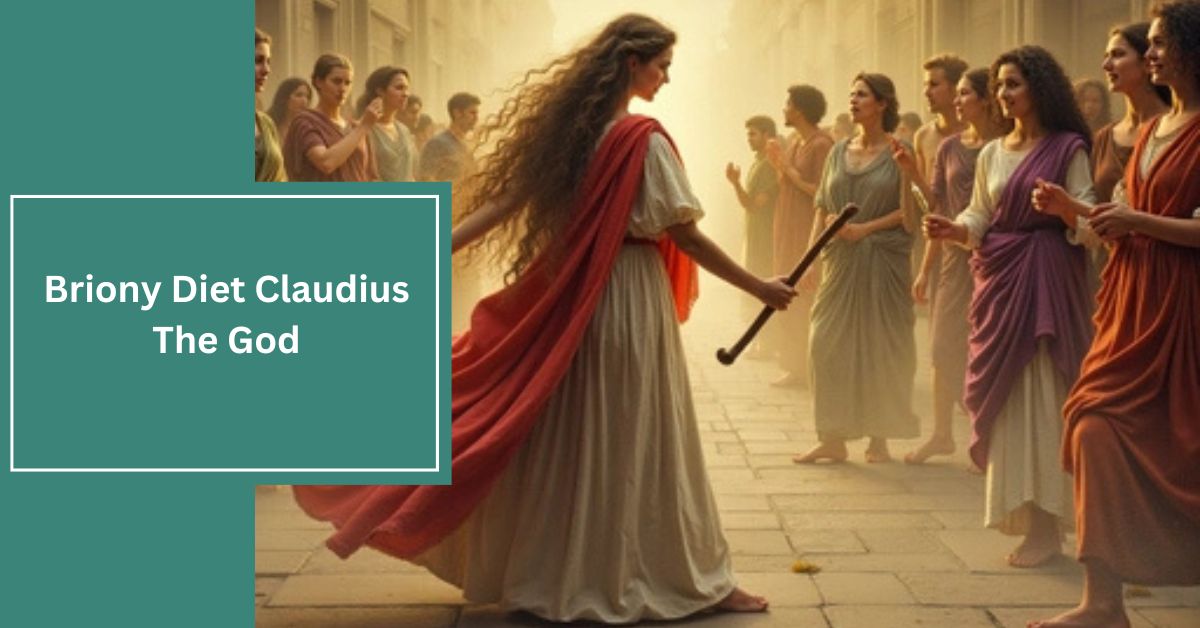The intertwining of fiction and history often leads to fascinating narratives that captivate readers and provoke thought. The phrase Briony Diet Claudius The God brings together literary themes, historical references, and the art of storytelling, presenting a unique blend of imagination and reality.
This article delves into the significance of Briony as a character, the historical context of Emperor Claudius, and the intriguing connections between diet, health, and historical accounts.
Who Is Briony?
Briony, a central figure in Ian McEwan’s Atonement, is portrayed as a young girl grappling with guilt and the weight of her actions. Her manipulative testimony alters the lives of those around her. The phrase Briony Diet Claudius The God might symbolize Briony’s attempt to control narrativesmuch like Claudius rewrote history to suit his reign.
Claudius the God – A Historical Perspective!
Emperor Claudius, immortalized in Robert Graves’ Claudius the God, is a compelling figure from Roman history. Graves constructed a detailed narrative based on classical sources, bringing to life the emperor’s struggles, triumphs, and peculiarities. Claudius, often dismissed due to his physical disabilities, proved to be a shrewd ruler.
The Role of Diet in Claudius’s Life:
Historical accounts reveal that Claudius placed great emphasis on health and diet. His physician, Gaius Stertinius Xenophon, prescribed treatments like exercise, massage, and botanical remedies, including bryony tinctures.

These methods highlight ancient practices where diet was integral to health, aligning with the phrase Briony Diet Claudius The God.
Read More: Wellness Nest Himalayan Shilajit – Unlocking the Secrets of Nature’s Superfood!
The Intersection of Fiction and History:
Both Briony and Claudius represent characters who navigate their worlds through rewriting and manipulation. Briony’s guilt-driven narratives echo Claudius’s calculated historical revisions.
The keyword Briony Diet Claudius The God aptly captures this convergence, merging personal introspection with public legacy.
Themes of Healing and Redemption:
Diet and healing are central motifs in historical and fictional contexts. Claudius’s reliance on dietary remedies symbolizes a broader quest for balance and vitality. Similarly, Briony’s journey in Atonement revolves around seeking redemption and healing from past mistakes.
The Role of Women in Narrative and History:
Both Briony and the world of Claudius highlight the differing roles of women in shaping and experiencing history. Briony, as a young woman, is both a creator and a manipulator of her narrative.
Her actions in Atonement showcase the complexities of female agency, guilt, and moral dilemmas. In contrast, the historical setting of Claudius the God portrays women in roles largely shaped by patriarchal expectations, such as Messalina, Claudius’s infamous wife.
By juxtaposing Briony’s fictional self-awareness with the historical constraints faced by women in Claudius’s time, the phrase Briony Diet Claudius The God opens a dialogue about how women are depicted in history and fiction as agents of change, redemption, or controversy.
Medicine and Health in Ancient Rome:
The mention of Claudius’s health treatments sheds light on the broader practices of medicine in Ancient Rome. Physicians like Gaius Stertinius Xenophon combined empirical practices with natural remedies, reflecting a nascent understanding of diet’s role in health.

For Claudius, who battled physical disabilities and neurological conditions, these treatments were essential not only for survival but also for maintaining his image as a capable ruler. The inclusion of bryony, a root used in traditional medicine, signifies an early recognition of plant-based healing.
This historical reliance on diet and botanical remedies adds another layer of meaning to the phrase Briony Diet Claudius The God, connecting modern dietary practices to their ancient origins.
Read More: Acid Reflux Diet Recipe for Fish Chowder – A Delicious and GERD-Friendly Dish!
The Power of Rewriting History:
One of the most compelling themes linking Briony and Claudius is the power to rewrite history. Briony’s narrative manipulations in Atonement are driven by guilt and a desire for atonement, while Claudius, both in reality and as portrayed by Robert Graves, actively rewrote the historical accounts of his reign to secure his legacy.
This theme resonates strongly today, emphasizing how narratives-whether personal or historical-can shape public perception. The act of rewriting history, whether for redemption or control, reflects humanity’s timeless struggle with truth and memory, making the phrase Briony Diet Claudius The God a symbol of this universal conflict.
Diet as a Metaphor for Balance:
In both fiction and history, diet serves as more than just a physical necessity; it becomes a metaphor for balance, self-control, and discipline. For Claudius, adhering to dietary and health regimens symbolized his ability to overcome physical and political challenges.
Similarly, in Briony’s case, the idea of a “diet” could be interpreted metaphorically as her disciplined attempt to reconcile with her past mistakes and construct a cohesive narrative.
This nuanced understanding of diet ties together the physical and emotional aspects of healing, further enriching the significance of Briony Diet Claudius The God. The metaphor extends to today’s context, reminding us that balance—whether in storytelling, health, or life-remains a cornerstone of human existence.
FAQs:
1. What illness does Briony have in Atonement?
Briony does not have a specific illness but experiences deep psychological struggles rooted in guilt and the consequences of her actions.
2. Who wrote Claudius the God?
Claudius the God was written by Robert Graves, who brilliantly brought the Roman emperor’s life to literary prominence.
3. How did Claudius use diet for health?
Claudius followed the guidance of his physician, relying on diet, exercise, and natural remedies to maintain his health. Bryony tinctures were among the treatments used.
4. What is the significance of Briony as a narrator?
Briony’s role as a narrator is pivotal in Atonement. Her perspective shapes the narrative and demonstrates how guilt and manipulation influence storytelling.
5. How does Claudius the God connect to history?
Robert Graves used classical sources to craft a historically rooted yet fictionalized portrayal of Emperor Claudius, blending real events with imaginative storytelling.
6. Why is the phrase Briony Diet Claudius The God important?
This phrase encapsulates themes of narrative control, historical reinterpretation, and the quest for healing, bridging fictional and historical domains.
Conclusion:
Briony Diet Claudius The God serves as a fascinating convergence of history, fiction, and health. From Briony’s introspective journey to Claudius’s dietary remedies, the phrase weaves a narrative that underscores the enduring relevance of storytelling, historical reinterpretation, and the human pursuit of redemption.
Read More:

Leave a Reply